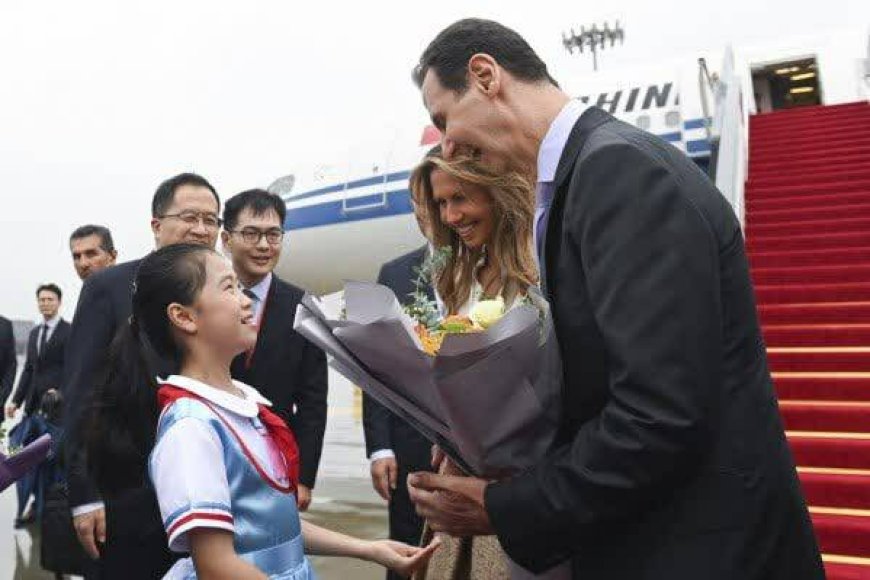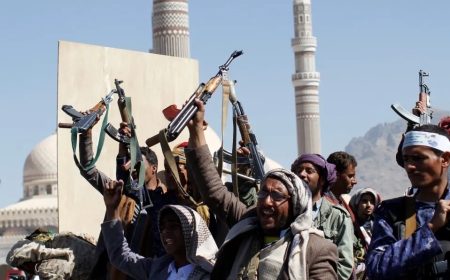Assad's Beijing Visit: A Game-Changer in Global Politics?
Assad's Beijing Visit: A Game-Changer in Global Politics?

The visit of Syrian President Bashar Assad to China holds tremendous diplomatic significance in the current global landscape. As Syria emerges from a historic period of resistance against foreign terrorists and the subsequent restoration of stability and security, this trip marks President Assad's first official diplomatic venture to China. Arab countries have also sought to normalize relations with Syria, with Iran's support serving as a catalyst for the exchange of ambassadors.
Concurrently, Western governments have expressed a desire to establish official ties with Damascus, marking a tangible shift following a decade of relentless attempts to overthrow Syria's legitimate administration. The immense costs incurred by countries supporting terrorism in their efforts to destabilize and destroy Syria have ultimately proven futile, owing to Syria's resilience and the unwavering support of its main ally, Iran.
The broader objective of these subversive efforts extended beyond regime change in Syria. Western governments sought to sabotage various energy transfer and corridor projects, which ultimately aimed to weaken the Iranian government and its allies across the region. However, Syria's steadfastness and the assistance of Iran have neutralized these machinations, ensuring the survival of Syria.
In light of these challenges, Syria has increasingly turned towards forging strategic relations with the Eastern Bloc, and President Assad's recent visit to China exemplifies this shift. To fully comprehend the significance of this landmark visit, it is crucial to analyze its economic, political, and military implications.
The political dimension of President Assad's visit underscores the importance of this trip, evident in the high-level coordination exhibited by China. The provision of a special plane for President Assad's visit symbolizes the strategic relations and shared objectives of the two nations. It sends an indirect message to other countries that Syria is considered a crucial ally of China. The historical backdrop of political relations between the two countries further highlights the depth of their connection.
Syria became the first Arab nation to recognize revolutionary China in 1971, and China has consistently demonstrated unwavering support for the legal system established in Syria. China's political perspective positions Syria as a member of its Eastern allied countries, emphasizing its desire to establish a presence in the delicate West Asian region, which has heightened the concerns of Western nations.
The military dimension of President Assad's visit holds immense importance in the context of Syria's army and military forces' reconstruction. Additionally, Beijing has expressed interest in establishing a special military base in Syria, serving to safeguard international trade in the Mediterranean Sea. The strengthening of military ties between the two nations sends a clear message to Syria's neighboring countries, with Turkey particularly feeling threatened by Syria's military enhancement.
The bolstered military capabilities of Syria could potentially lead to efforts by the Syrian government to reclaim remaining occupied territories within the country, which have been captured by multinational terrorists. By fortifying the Syrian army, Beijing effectively communicates its stance to the United States and exerts pressure for a swift departure from Syria.
The economic dimension of President Assad's visit is of paramount importance for Syria, which continues to require substantial reconstruction efforts following years of conflict. To achieve this goal, Syria must attract foreign investors through consultations with various countries. Iran has played a pivotal role in encouraging China to undertake extensive economic plans aimed at revitalizing Syria's infrastructure. Furthermore, China seeks to revitalize Syria's infrastructure to facilitate its New Silk Road initiative, with the Iran-Iraq-Syria land route serving as the most economically feasible option.
Western countries have recently proposed an alternative east-west corridor, challenging China's plan. China's response to this proposal has been to strengthen Syria, enabling the implementation of its own plan, which holds significant economic and political implications. In conclusion, it is worth noting that Iran, as the security anchor for West Asian countries, consistently endeavors to bolster its allied nations across various circumstances, be it during times of war or peace. Iran serves as a reliable support point for its friends, and Syria's experience underscores the message of peace, stability, and security conveyed by close political ties with Iran. Countries that cultivate such relations with Iran are poised to achieve their objectives in the region.













































